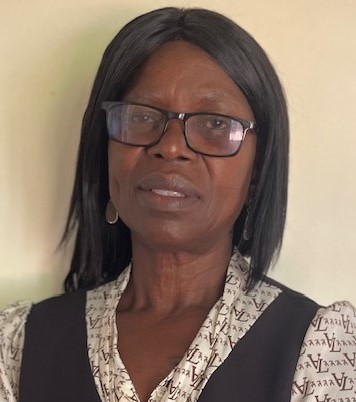The Department of Agronomy and Horticulture has a long and proud tradition of producing quality graduates, its research expertise and involvement in capacity development in communities. The first lectures in the then Crop Production and Horticulture at the Midlands State University commenced in August 2000. In 2003 the then Department of Crop Production was split into two Departments- that of Agronomy and that of Horticulture due to high demand for horticulturalists in the early 2000s when growth of the fresh produce export was on the rise. The two Departments were then amalgamated again in January 2019 into the Department of Agronomy and Horticulture in an effort to consolidate resources between the two Departments. With over 10 academic staff, the Department has a committed team of staff who aim to provide the very best undergraduate and postgraduate education in the broad arena of Crop Sciences, agronomy, horticulture, landscape design, viticulture (grape production), plant breeding, herbal plant science, biotechnology, plant pathology, entomology, seed science and organic farming. Delivery is through the following programmes:
- BSc Honours Agronomy;
- BSc Honours Crop Production & Horticulture;
- BSc Honours Horticulture;
- BSc Honours Agronomy majoring in Crop Improvement & and Seed Production;
- BSc Honours Crop Protection ;
- MSc Crop Science;
- MSc Crop Protection;
- MSc Horticulture Sciences;
- Master of Philosophy in Agronomy;
- Doctor of Philosophy (various fields)
Research based degrees are also offered i.e Master of Philosophy (MPhil) Degrees and Doctor of Philosophy (DPhil) Degrees. The Department also offers short courses on various crop-related areas to farmers and other stakeholders e.g. extension agents. In addition, staff carry out locally relevant but internationally competitive research in these fields, and several staff are leaders in these fields. Our research is centred on solving problems, creating opportunities, and improving the lives and livelihoods of Zimbabweans. The Department works closely with industry for example the Tobacco Research Board, the Seed Company of Zimbabwe (Seedco), the Zimbabwe Sugar Association Experiment Station (ZSAES), CIMMYT and ICRISAT. In terms of community engagement, members of the Department have been involved in development of new crops such as grain Amaranthus and Quinoa in collaboration with various NGOs in Lupane, Tsholotsho, Insiza, Binga, Buhera and Chipinge Districts. We are also involved in engaging farmers in interpretation and use of seasonal rainfall forecasts as well as in climate-related disaster risk assessments; emergency research in response to climate change-induced disasters e.g. research on mitigation of impacts of Cyclone Idai in Chimanimani District sponsored by TSURO Trust as part of a consortium of local and international Universities. The Department has answered to research calls of national importance for example: Science and Technology Development linked to propagation and processing of indigenous fruits, funded by the Ministry of Higher and Tertiary Education and the Climate Change Mainstreaming Research Programme funded by the Ministry of Environment, Climate, Tourism and Hospitality Industry.
Mission:
The mission of the Department of Agronomy and Horticulture is to discover, share knowledge and develop cropping solutions including the development of climate smart technologies that increase the efficiency, reliability, and profitability of crop production in drier parts of Zimbabwe and around the world. The Department seeks to collaborate with like minded institutions and organisations in conducting research and teaching/training activities that promote efficient crop production, improve rural agro-based economies and encourage environmentally sound practices that lead to alleviation of poverty and hunger while producing highly skilled graduates.
Vision:
We envision a crop production landscape that is balanced and sustainable, where crop diversity, soil and water conservation, clean air and water are the backbone of successful farming. We advocate for integration of ecologically sustainable farming techniques that reduce the use of harmful chemicals in crop production and increase plant diversity, promote healthy soils and develop plant genetic resources that are efficient in utilisation of external inputs such as fertilisers. These production technologies must benefit all levels of crop production thereby ensuring the adaptation by farmers to climate change. The Department thrives to be a pacesetter in research, teaching, community engagement, development of cutting-edge innovations and industrialisation thereby contributing to robust national and global agricultural systems and economies through production of highly skilled graduates grounded in deep theoretical background.

